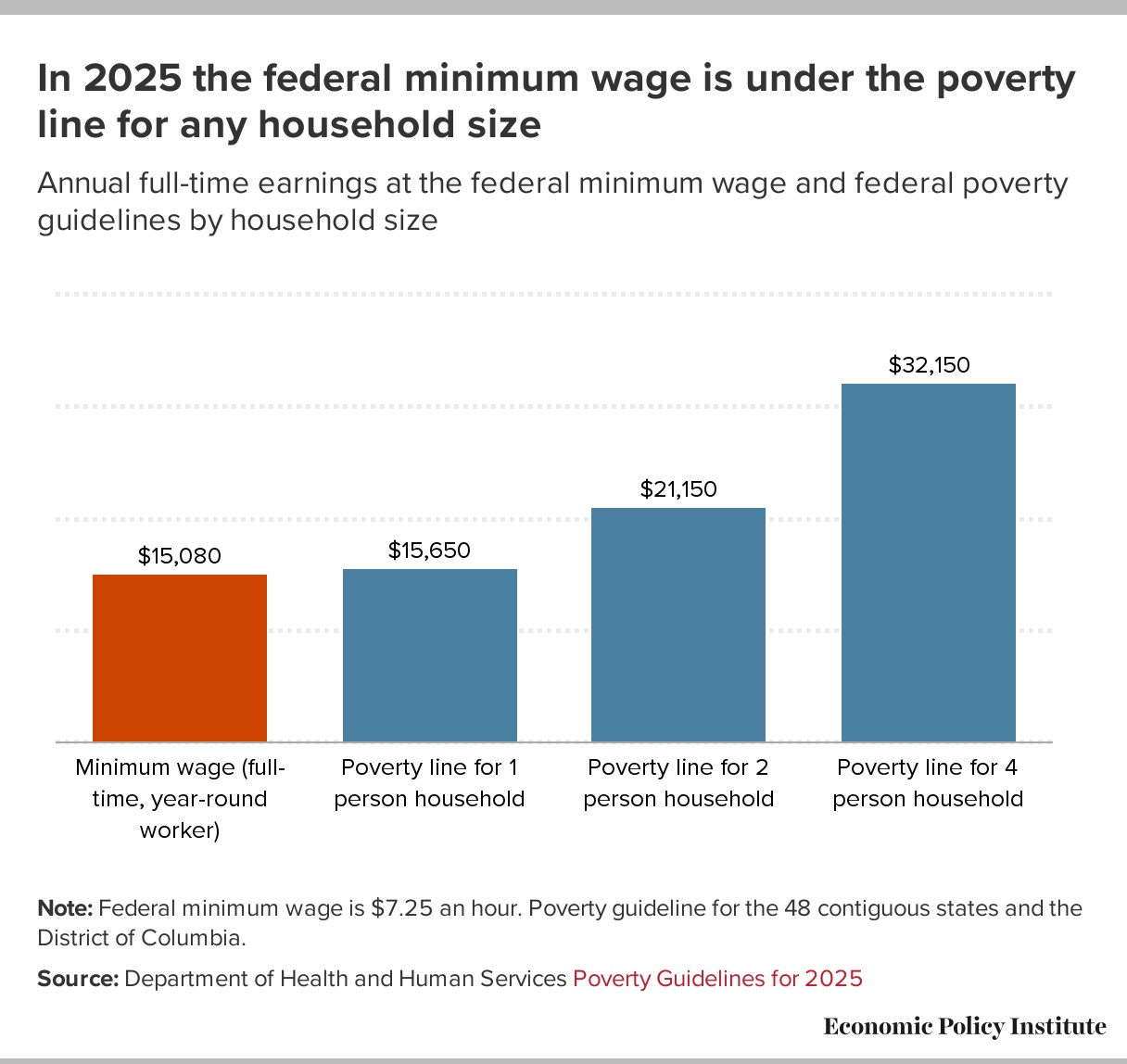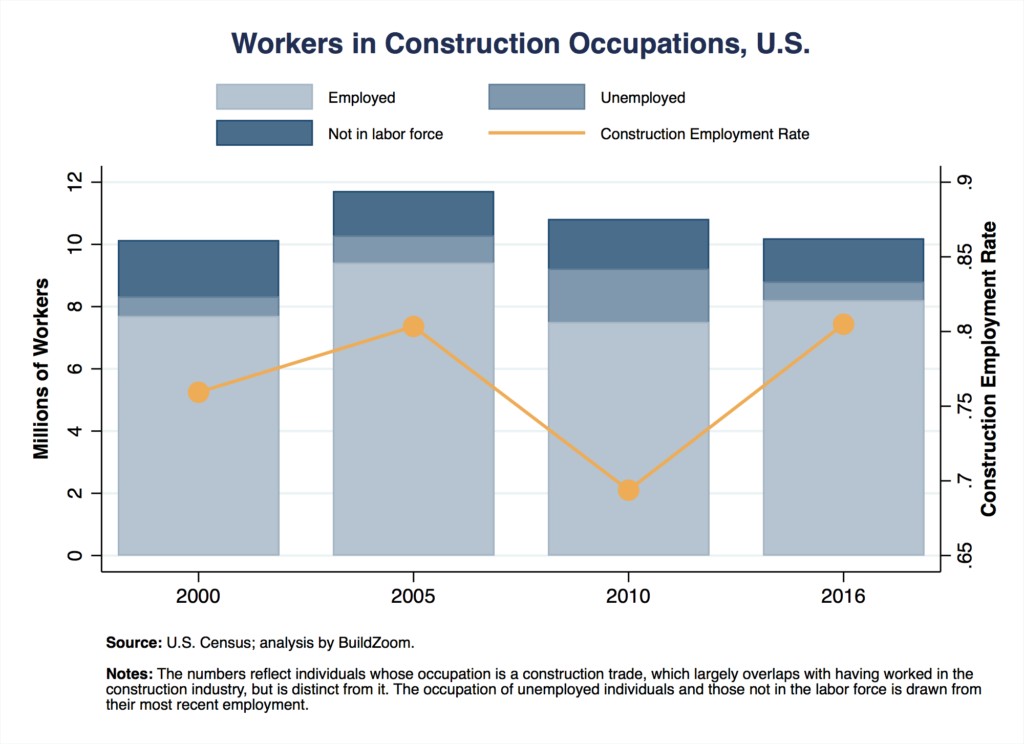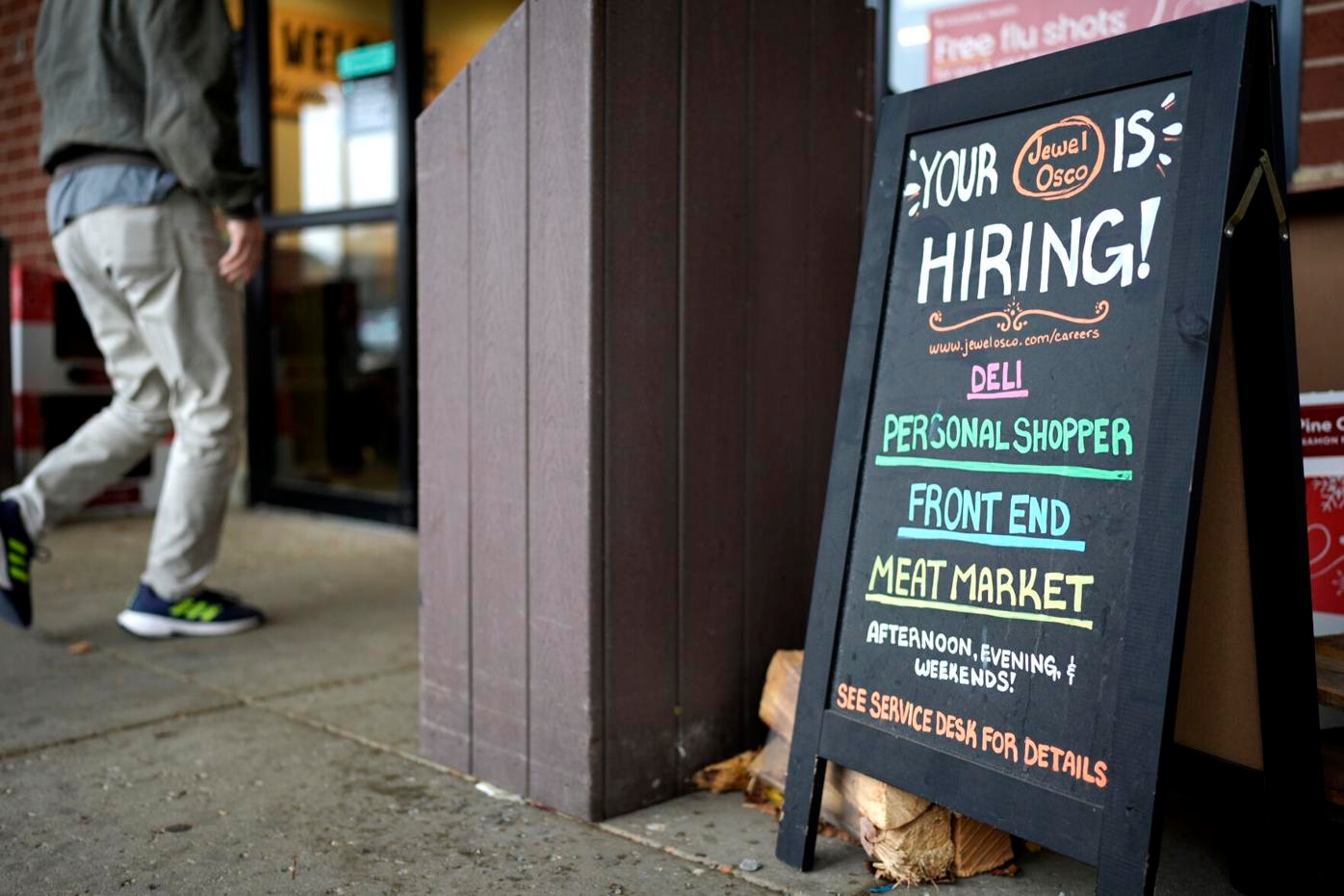U.S. Labor Market Defies Expectations with Strong April Job Growth
The U.S. economy added 177,000 jobs in April, surpassing forecasts of 135,000, while maintaining a steady 4.2% unemployment rate. Healthcare, transportation, and hospitality sectors led the growth, though economists warn of potential market challenges ahead.
Manufacturing's Reality Check: Why America's Factory Job Dreams Need a Reset
Politicians promise to restore manufacturing jobs to historic levels, but adding 20 million factory workers may not align with modern economic realities. The vision of revitalizing U.S. manufacturing through trade barriers overlooks how automation, global supply chains, and workforce preferences have fundamentally transformed industrial employment.
Federal Minimum Wage Falls Below Poverty Line, Leaving Millions of Workers in Crisis
The federal minimum wage of $7.25 per hour has dropped below the poverty threshold in 2025, with full-time workers earning $600 less than the federal poverty line annually. The stagnant rate, unchanged since 2009 despite rising living costs, is severely impacting workers across 21 states and contributing to America's growing homelessness crisis.
America's Trucking Crisis: A Looming Threat to Supply Chain Stability
Despite growing demand for drivers, the U.S. trucking industry faces a critical retention crisis fueled by deteriorating wages and working conditions. With experienced drivers leaving in droves and companies reluctant to implement reforms, this mounting crisis threatens America's entire supply chain infrastructure.
Great Recession's Ghost: How Construction Worker Exodus Still Haunts Housing Market
A decade after the 2008 housing crash, regions hit hardest by the Great Recession face 17-20% fewer construction workers and significantly reduced housing production. This lasting workforce decline continues to restrict housing supply and drive up costs nationwide, despite strong demand.
U.S. Jobless Claims Drop as Labor Market Shows Continued Resilience
The U.S. labor market remains robust with unemployment claims falling to 213,000, defying expectations amid low layoff rates. While some major companies announce workforce reductions, the broader job market maintains stability with a 4% unemployment rate and steady job growth.
Spain Proposes Historic 37.5-Hour Work Week While Maintaining Full Salaries
Spanish government ministers have agreed to reduce the standard work week from 40 to 37.5 hours without cutting wages, marking a revolutionary shift in labor policy. The groundbreaking proposal, which still requires parliamentary approval, aims to enhance work-life balance and economic productivity across the nation.
UK's Four-Day Work Week Revolution: 200 Companies Lead the Way
Two hundred British companies, employing over 5,000 people, have permanently adopted a four-day work week without pay cuts. The movement spans multiple sectors, with marketing, charity, and tech firms leading the charge, while younger workers strongly support this shift toward better work-life balance.
Costco Workers Authorize Nationwide Strike as Contract Deadline Looms
Teamsters union members at Costco voted overwhelmingly to authorize a nationwide strike, with 85% supporting potential walkout ahead of January 31 contract expiration. The union, representing 18,000 workers, demands better compensation amid Costco's soaring profits of $7.4 billion.
The Enduring Value of Human Labor in an AGI Future
Despite concerns about AI automation, historical patterns and economic principles suggest human labor will remain valuable even with artificial general intelligence. From stable GDP shares to complementary productivity gains, multiple factors indicate a future of human-AI collaboration rather than wholesale worker displacement.









